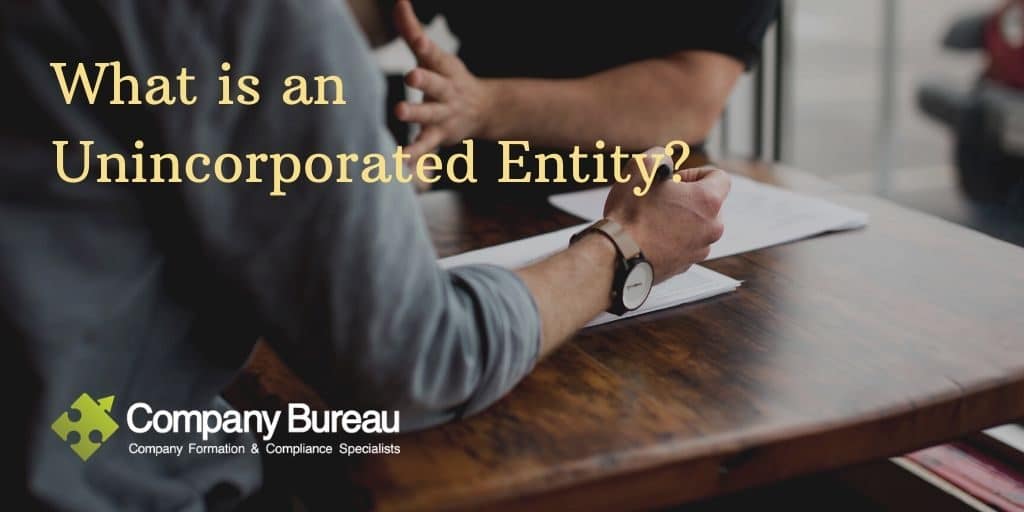By Caitlyn Buchanan, 3rd March 2020
An ‘unincorporated entity’ describes a business structure that does not undergo the incorporation process. In Ireland, these businesses are typically registered as an extension of the individual(s) that own them via a business name registration as a sole trader or partnership. It is important to note that this business structure does not have limited liability. Therefore, the owners of Unincorporated entities are personally responsible for all debts of the business.
What types of businesses are considered Unincorporated Entities?
The following business structures are classified as unincorporated entities:
Sole Trader – A single person can register a business name and operate as a sole trader. In Ireland, a sole trader business is connected to an individual’s PPS number for taxation purposes.
Partnership – Two or more members share the investment and management of a business. The partners share the profits, and should the business come into difficulty they share the responsibility for the liabilities/debts of the business.
Sole Trader and Partnership businesses are relatively easy to set up, the first step is to Register a Business Name with the CRO – Registration with the Revenue Commissioners is also required.
Friendly Society / Cooperative – This type of structure is owned and controlled by its members who often are closely associated with the producers or consumers of the products or services. These businesses have a range of social characteristics and require permission from the Registrar of Friendly Societies.
Please note: It is no longer possible to register a new Co-Op or Friendly Society. The change was introduced following the application of Section 5 of the Friendly Societies and Industrial and Provident Societies (Miscellaneous Provisions) Act 2014.
Is an Unincorporated Entity the same as an Unincorporated Company?
An unincorporated entity may be referred to as ‘unincorporated company’. However, the term company implies that the business has been incorporated. Therefore, it is not possible to have an unincorporated company. As previously stated, an unincorporated entity is a legitimate business structure, although it is not technically a company.
What is the difference between an Unincorporated and Incorporated Entity?
The main differences between an unincorporated and an incorporated entity are:
Unincorporated Entity:
- Is an extension of its owner(s) entity
- Taxation is based on personal tax
- Can apply for Charitable Status (0% Tax)
- Does not have limited liability
- Funded by the owners (no shares to issue)
Incorporated Entity:
- Is a separate legal entity
- Eligible for Corporation Tax, (12.5%)
- Can apply for Charitable Status (0% Tax)
- Has limited liability
- New Shares can be issued to investors
It is common for a business to start off as an unincorporated association of individuals because they are inexpensive and relatively easy to set up. Once the business grows and becomes more complex, the owners may decide to incorporate the business using the appropriate company type. When a company is incorporated, it will become its own legal entity, this will make it easier to engage in business activities such as entering into contracts, employ staff or lease property. Choosing a limited company structure will protect the owner’s personal assets against the business’s debts.
For more information about setting up an unincorporated business or how to choose an appropriate company type for your business, please don’t hesitate to contact the experts at Company Bureau on +353 (01) 646 1625 or email formations@companybureau.ie.
Disclaimer This article is for guidance purposes only. It does not constitute legal or professional advice. No liability is accepted by Company Bureau for any action taken or not taken in reliance on the information set out in this article. Professional or legal advice should be obtained before taking or refraining from any action as a result of this article. Any and all information is subject to change.
